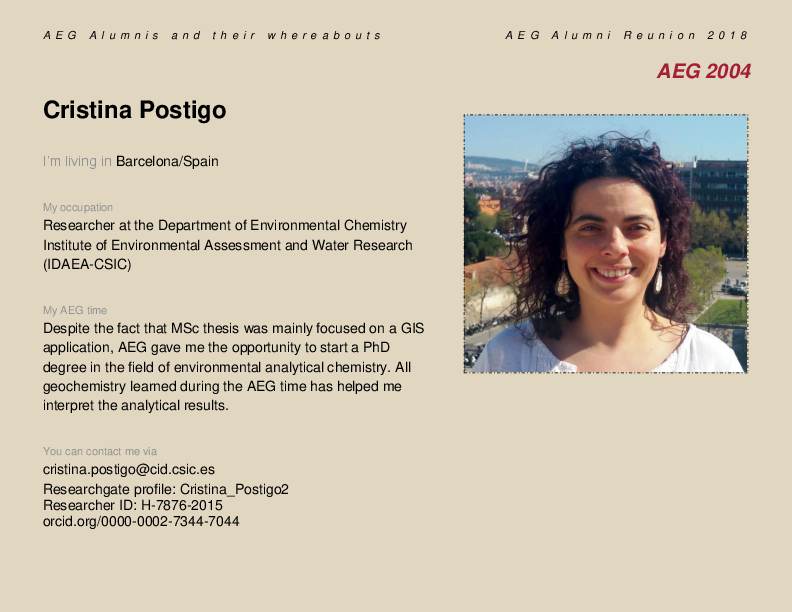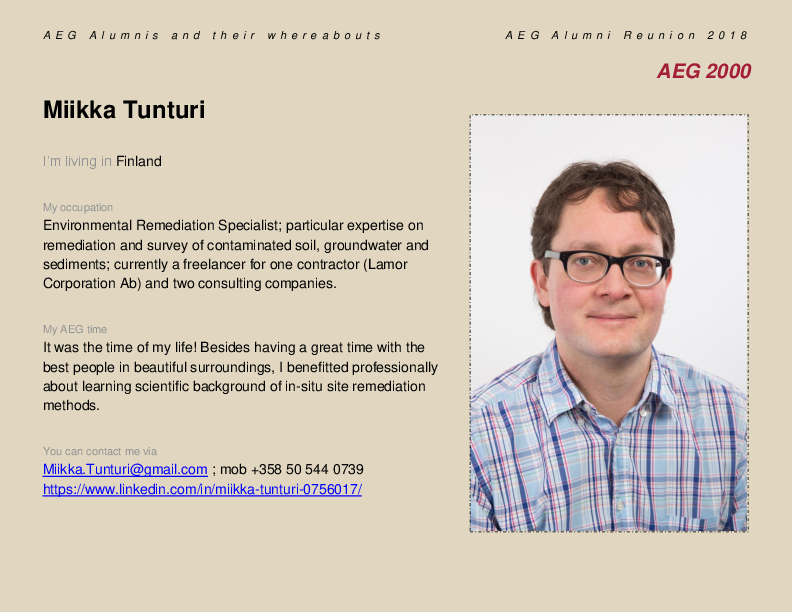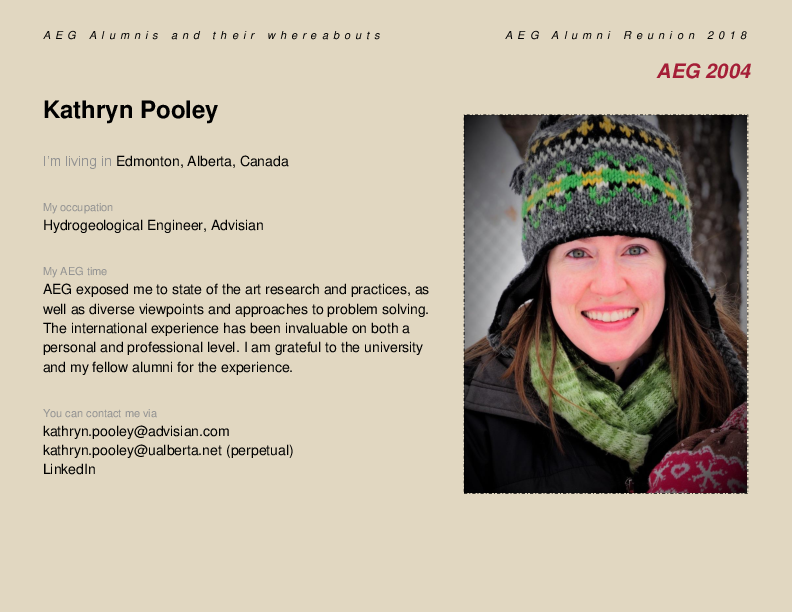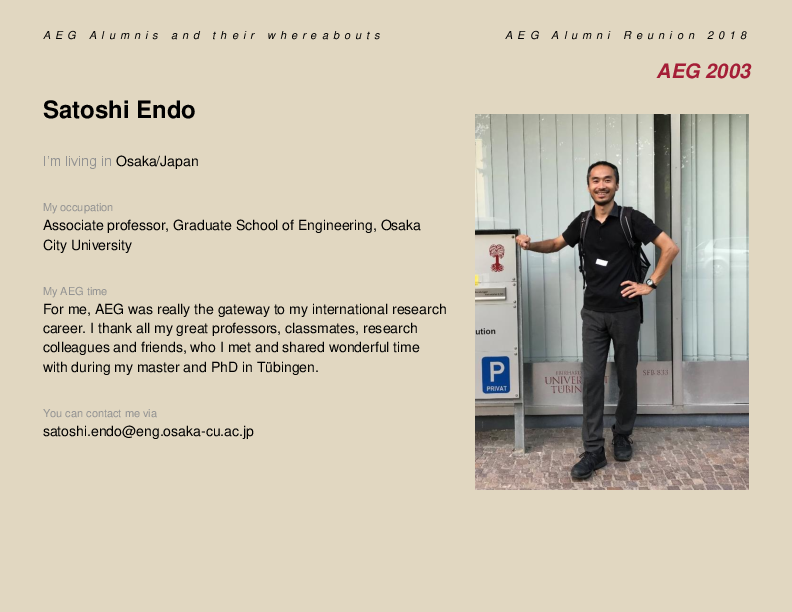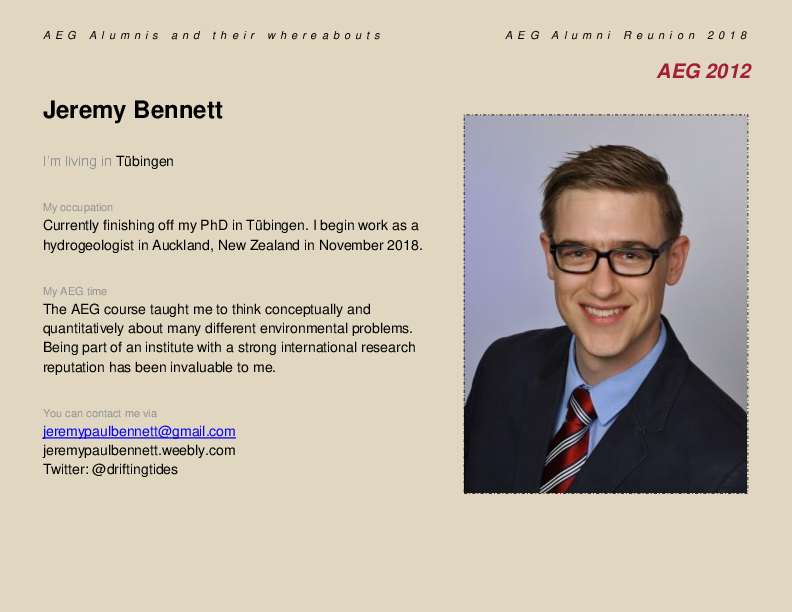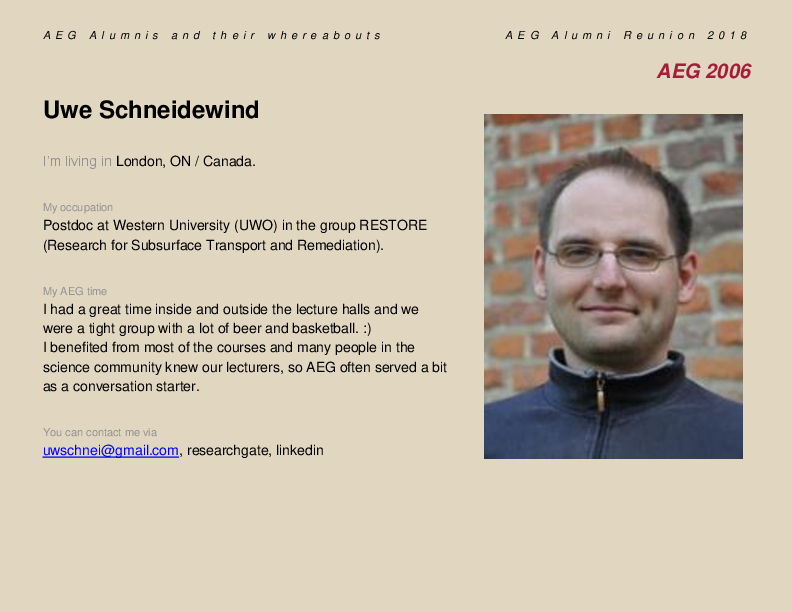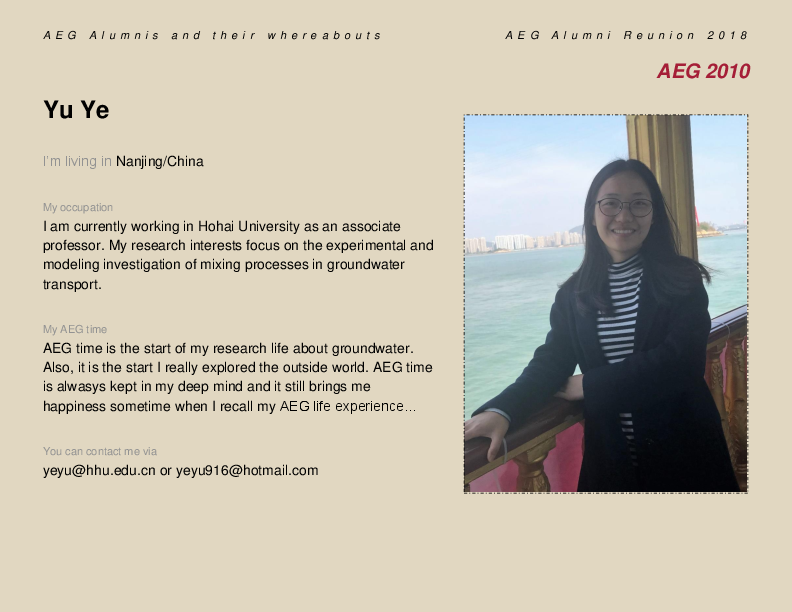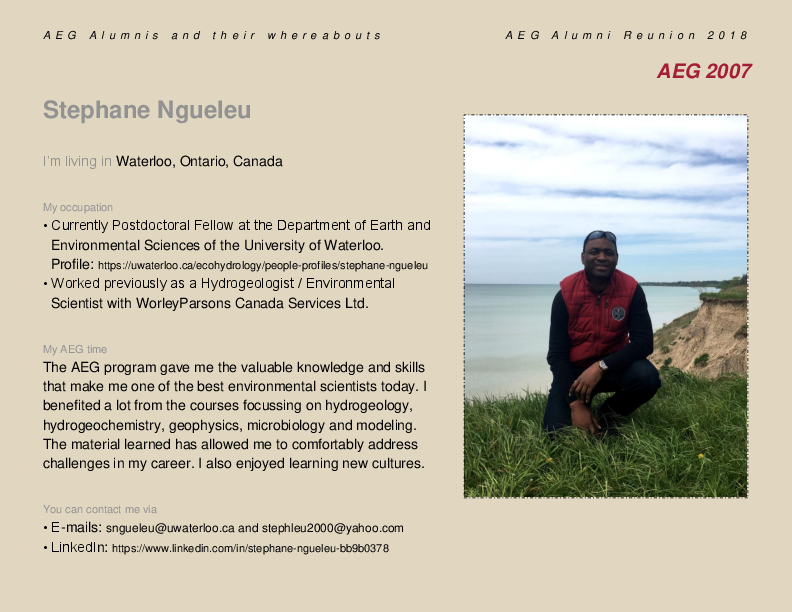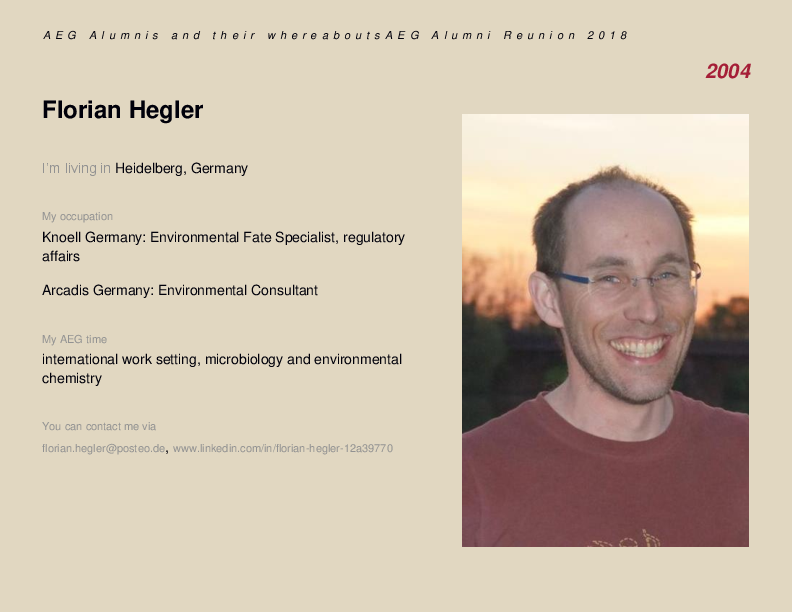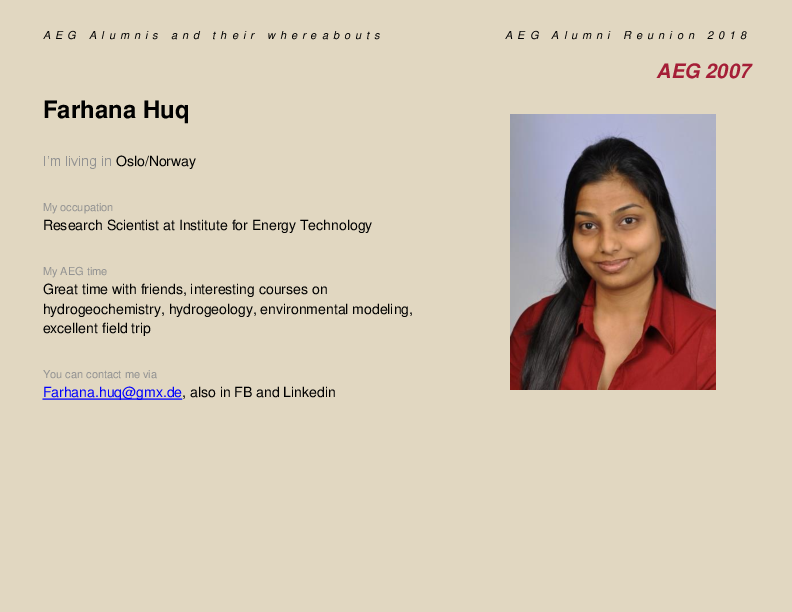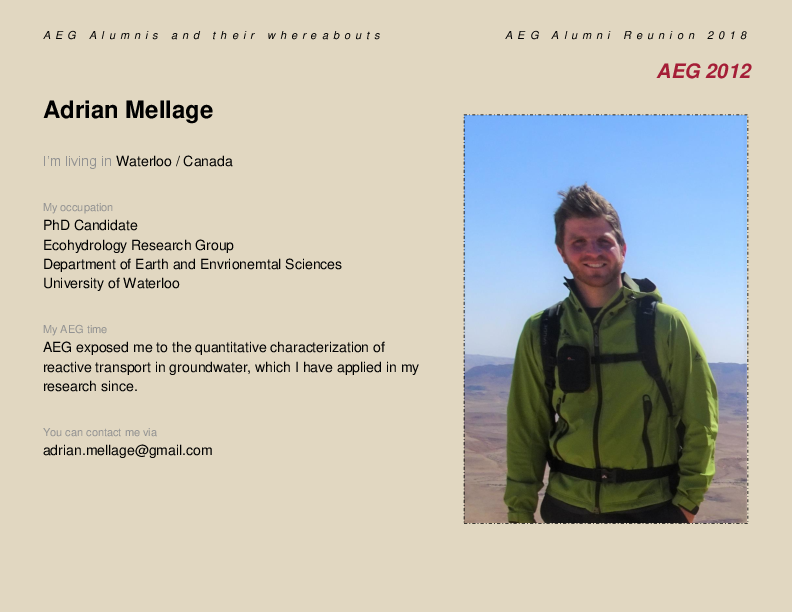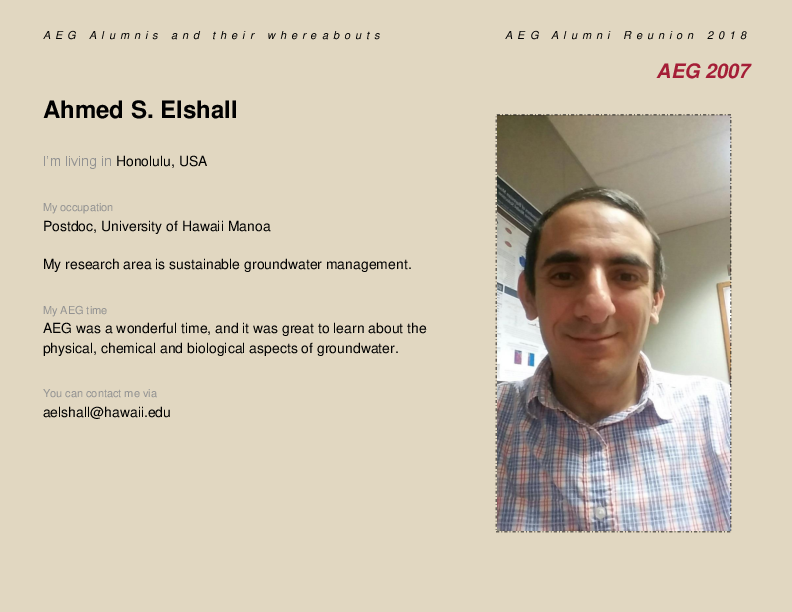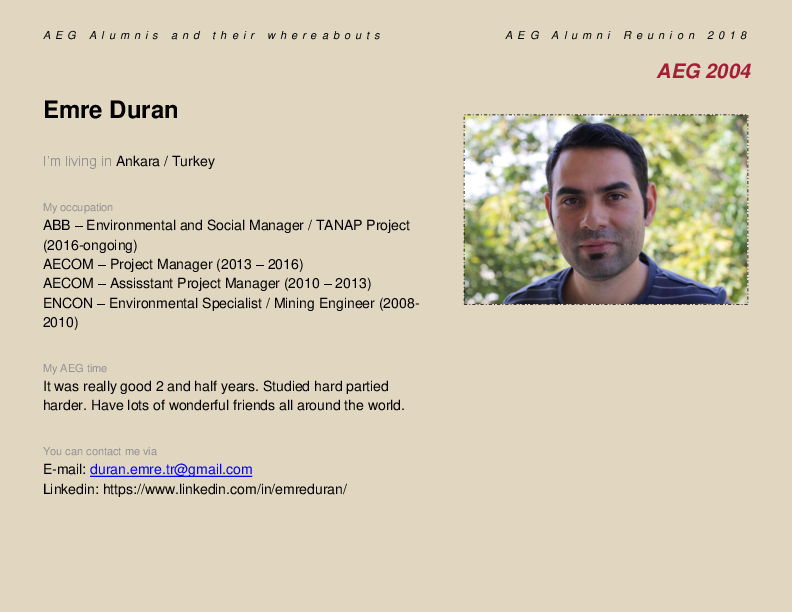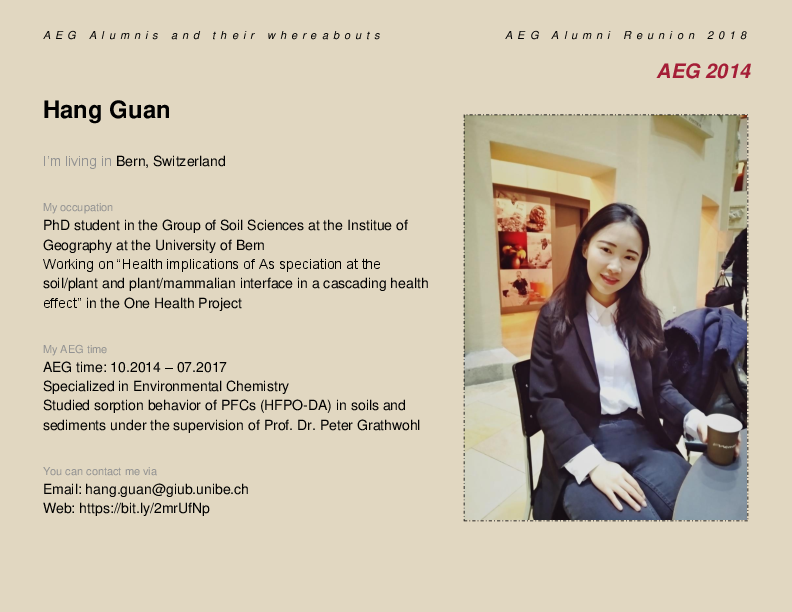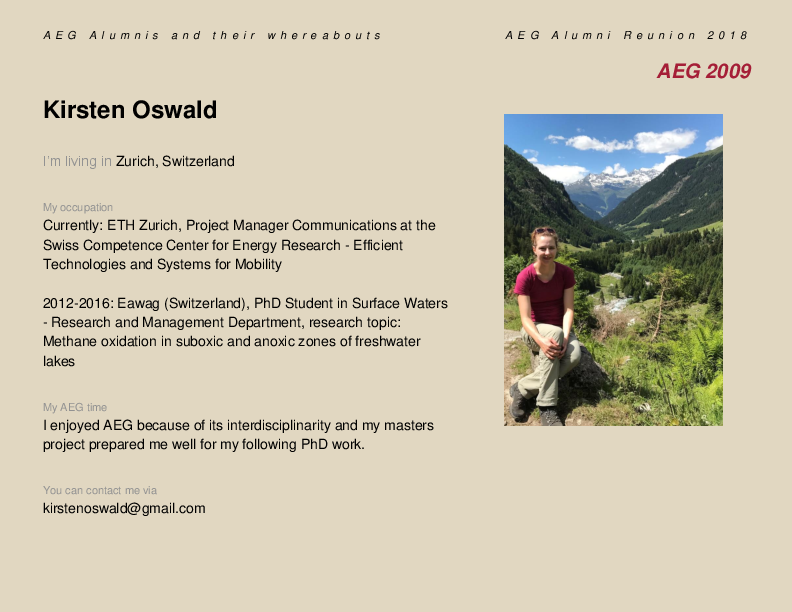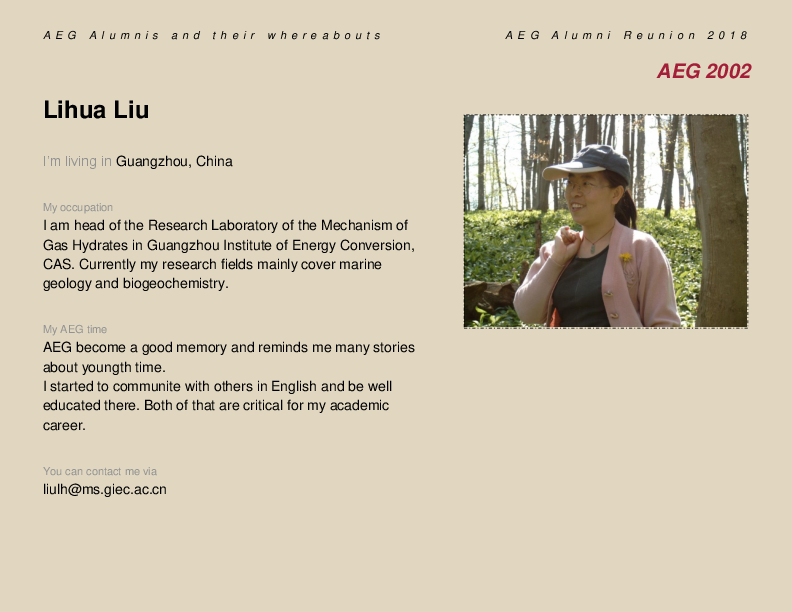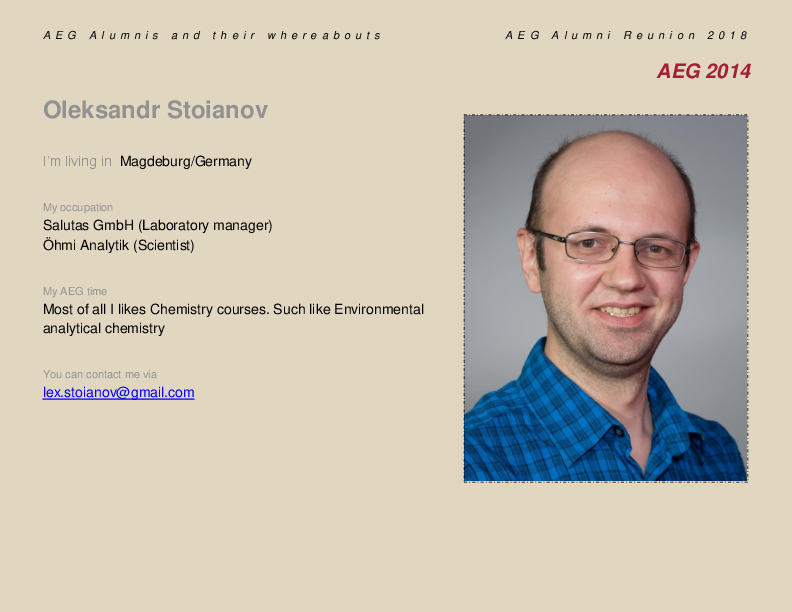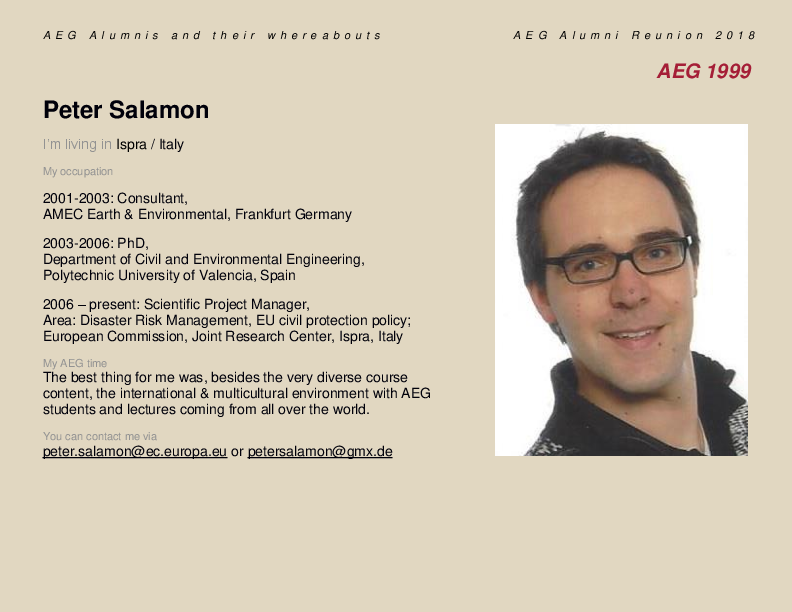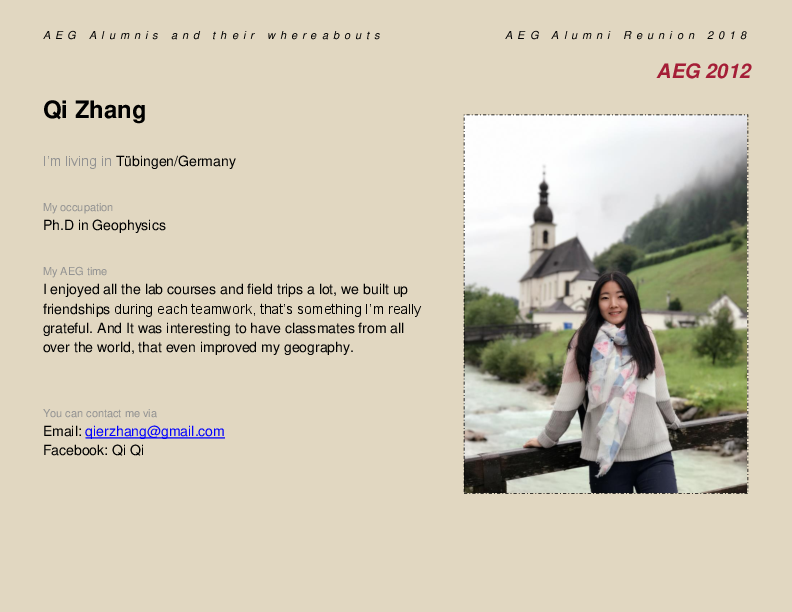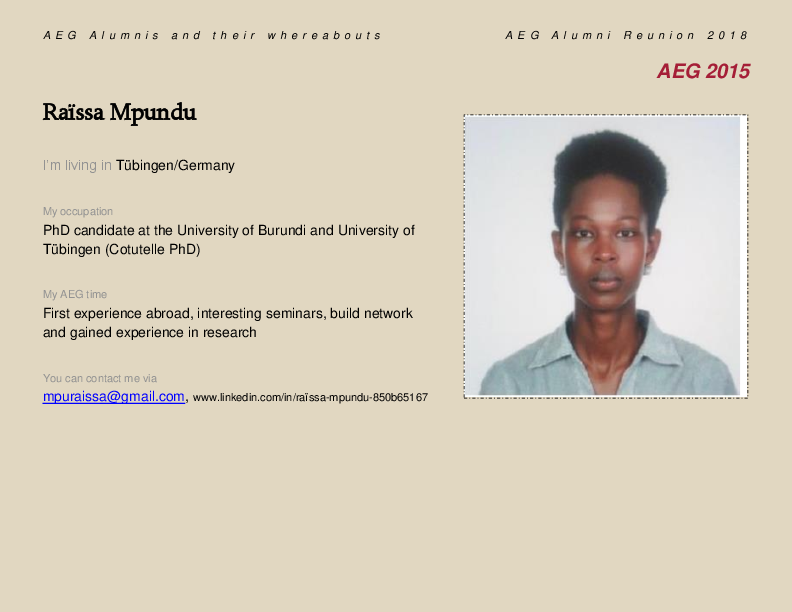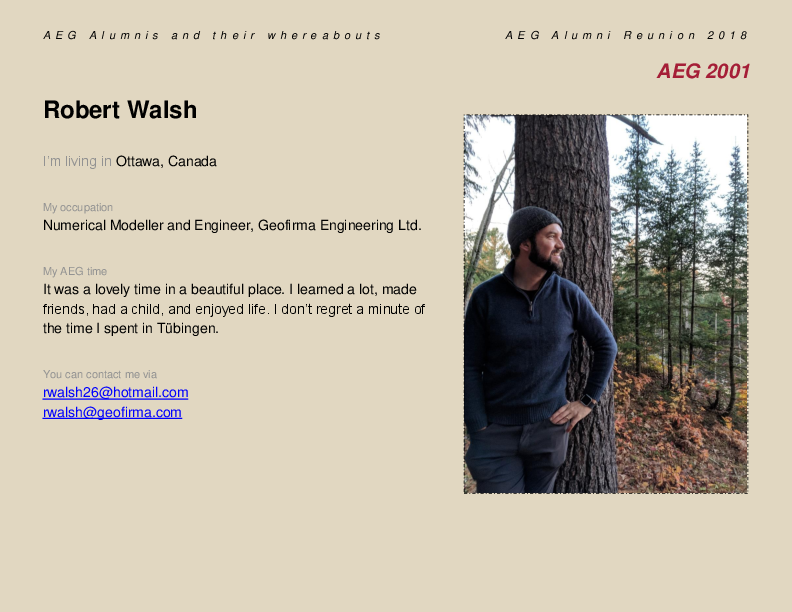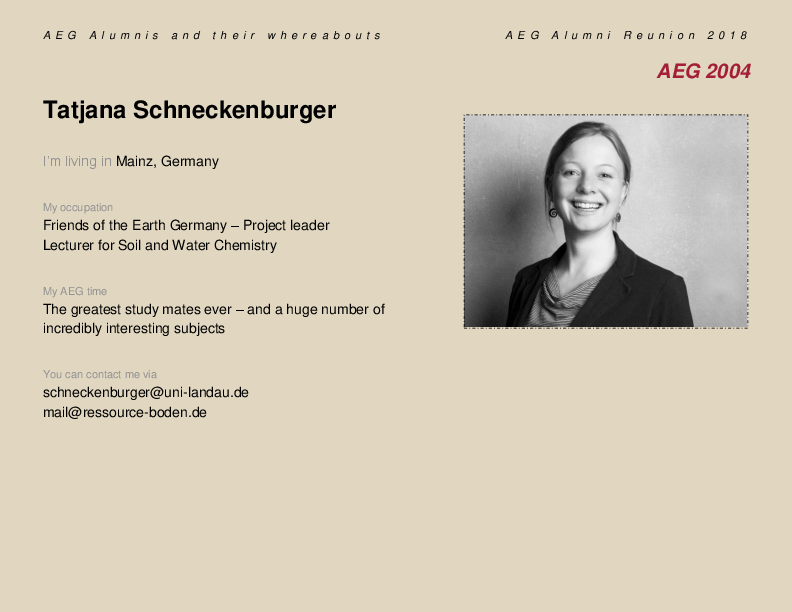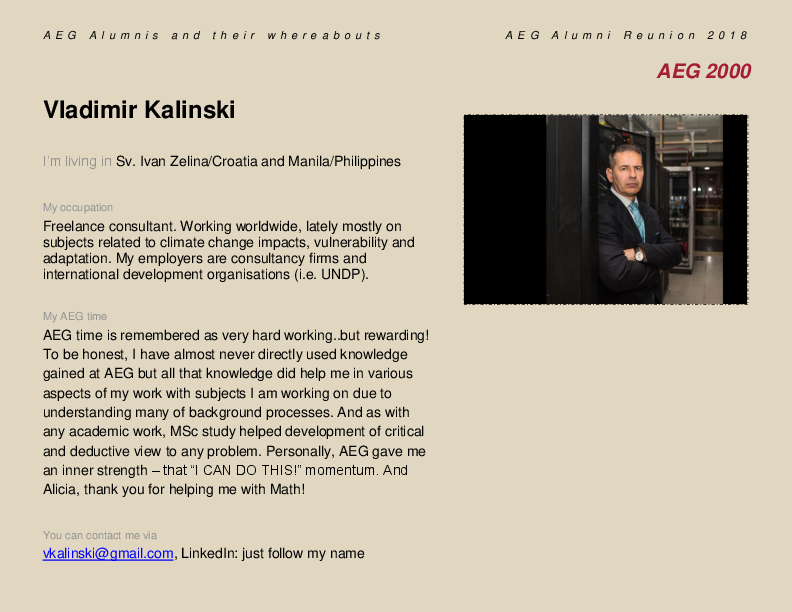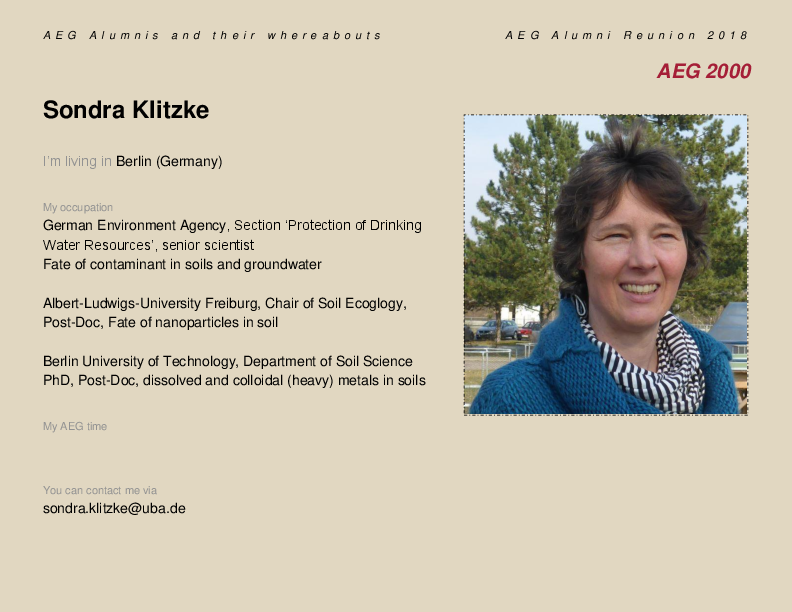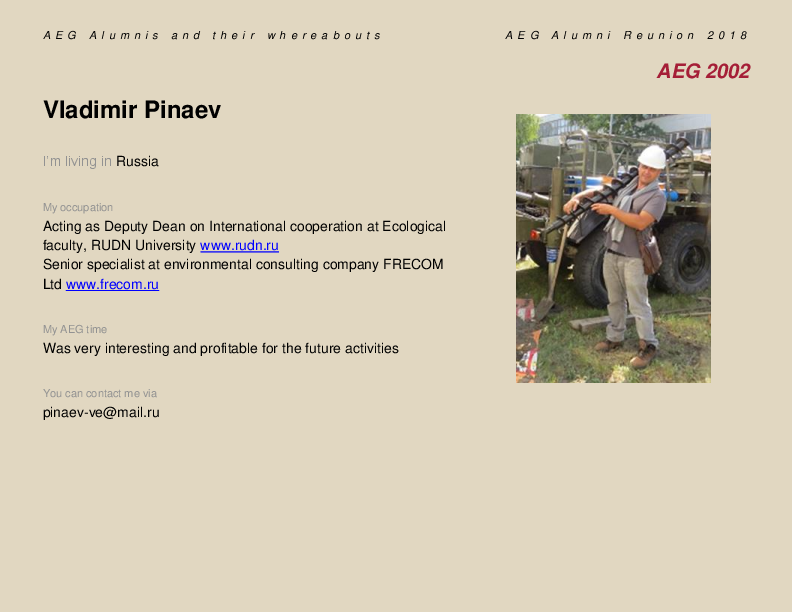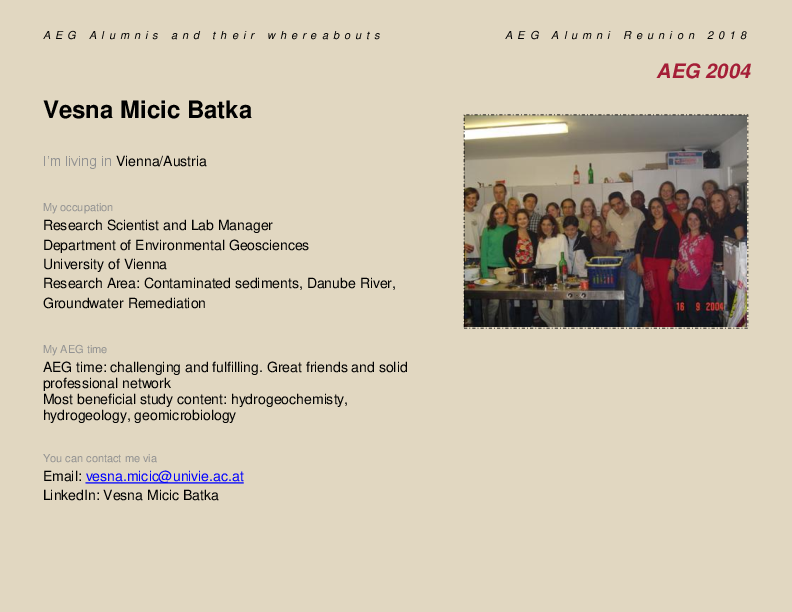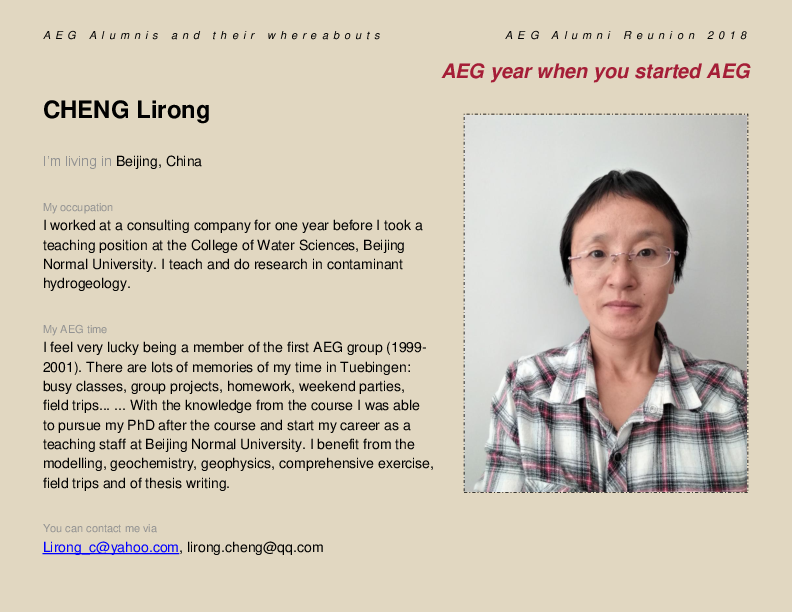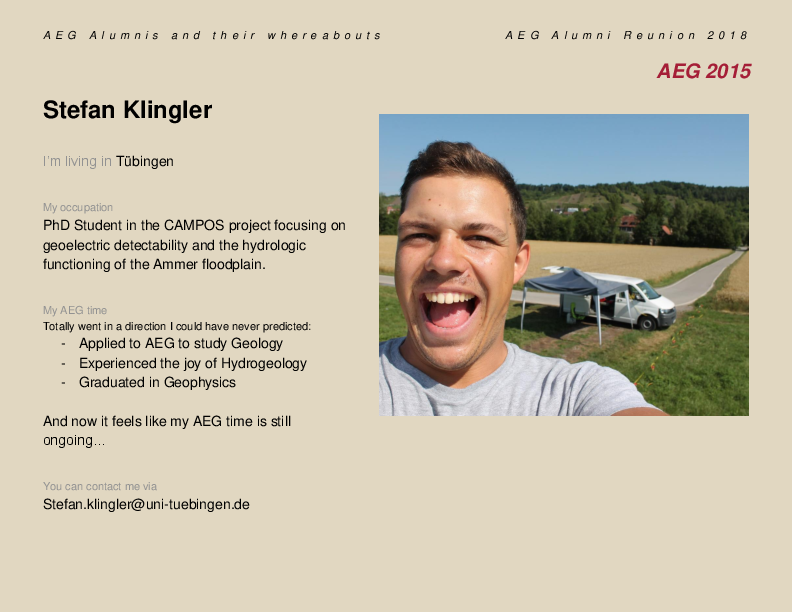MSc Applied & Environmental Geoscience (AEG)
Applied & Environmental Geoscience (AEG) is an international research-oriented study program focusing on the evaluation and solution of environmental problems.
Special emphasis is given to environmental problems in the subsurface such as the pollution of drinking water supplies from groundwater resources, the non-sustainable use of natural resources, the impact of short and long term waste disposal, the impact of climate and land-use change on soil and water quality.
The program aims for a comprehensive understanding of the physical, chemical, and biological process mechanisms in the geo- and hydrosphere. Students from various science backgrounds learn to qualitatively and quantitatively address complex processes in soils, water and air and to evaluate environmental risks based on multi-disciplinary approaches.
Externer Inhalt
Hier wäre eigentlich ein Video zu sehen. Damit Sie diesen Inhalt (Quelle: www.xyz.de) sehen können, klicken Sie bitte auf "Akzeptieren". Wir möchten Sie darauf hinweisen, dass durch die Anzeige dieses Videos Daten an Dritte übertragen oder Cookies gespeichert werden könnten.
Weitere Informationen finden Sie in unserer Datenschutzerklärung.
Externer Inhalt
Hier wäre eigentlich ein Video zu sehen. Damit Sie diesen Inhalt (Quelle: www.xyz.de) sehen können, klicken Sie bitte auf "Akzeptieren". Wir möchten Sie darauf hinweisen, dass durch die Anzeige dieses Videos Daten an Dritte übertragen oder Cookies gespeichert werden könnten.
Weitere Informationen finden Sie in unserer Datenschutzerklärung.
Study Profile
The program is designed for students holding an undergraduate degree in natural sciences or engineering, who are interested in a process-oriented, research-driven graduate education in environmental geosciences following multidisciplinary approaches. A good background in mathematics, chemistry, and physics is required. Undergraduate training in geosciences or environmental sciences is helpful but not requested. Capabilities of independent problem solving are important and will be further developed within the educational program.
Students can specialize in:
- Environmental Chemistry and Environmental Microbiology
- Environmental Physics
- Hydrogeology
Modules of the MSc Geowissenschaften can be chosen as elective courses to combine Applied & Environmental Geoscience with other fields of geology.
Unique Facilities
The Geo- and Environmental Research Center (GUZ) offers extensive laboratory facilities with state-of-the-art experimental and analytical equipment as well as modern field investigation and monitoring equipment. In the new department building, opened in 2020, the GUZ operates modern laboratories for
- standard hydrochemistry covering all major anorganic components
- the analysis of organic micropollutants
- molecular-biological and microbiological analysis
- optical fluorescence and electron microscopy
- geotechnical engineering and hydraulic studies
and is equipped with modern hydrogeological and geophysical site-investigation devices for pumping/slug tests, tracer tests, geomagnetic and seismic surveying, electrical-resistivity tomography, and ground-penetrating radar. A direct-push device is available for soil/aquifer sampling and installation of piezometers.
Field courses take place in part at the Tübingen hydrogeological research site 'Lauswiesen', where a well field is installed and operated for research and education purposes.
Job Perspectives
As AEG students have various academic backgrounds - some are trained in geosciences, others in environmental sciences, chemistry, biology, physics or engineering - they choose different specializations in their studies according to their respective backgrounds and interests. Therefore, AEG alumni are also working in a variety of fields.
The key employers for graduates of the AEG program are environmental consultancies working in:
- characterization of sites (hydrogeological, geophysical, chemical and microbiological analysis)
- assessment of environmental risks
- management of water resources
- design and operation of remediation technologies
- modeling of flow and reactive transport in subsurface systems
AEG graduates are also well trained for jobs in environmental agencies, non-governmental organizations, and (re-)insurance companies covering costs of environmental risks and remediation. Furthermore, AEG lays an excellent foundation for doctoral studies in programs of earth sciences, environmental sciences, and environmental engineering.

